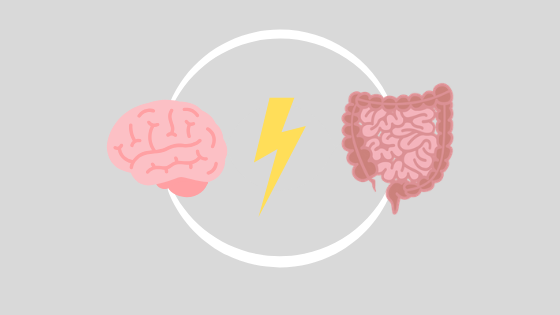A new study strengthens the link between microbiota and mental health.
As seen in Psychology Today
The gastrointestinal [GI] tract is one of the most intricate and complicated systems found in the body. More than just being the network of organs that breaks down the food we eat, the GI tract also contains around 100 million nerve cells that run from the esophagus to the anus. It is also home to constellations of neurotransmitters, viruses, and as many as 40,000 different species of bacteria. Taken together, this complex network is known as the enteric nervous system [ENS].
The ENS does not operate in isolation. It is in constant contact with the central nervous system [CNS]. The two-way communication system connecting the ENS and the CNS is known as the gut-brain axis. When there is a disruption in the ENS, there may be a corresponding problem in the CNS. The converse is also true. When a patient exhibits symptoms suggestive of a mental disorder or disease, one tends to find anomalies in the ENS and even in the patient’s gut biome.
Research indicates that this is oftentimes true of neurodegenerative disorders, such as Parkinson’s disease and multiple sclerosis, as well as disorders that are typically thought of as being confined to a specific portion of the digestive tract—such as ulcerative colitis and irritable bowel syndrome. Researchers are even finding a strong correlation between individual mental disorders, such as schizophrenia, and deviations in the populations of specific gut bacteria populations.
A Gut Reaction
This may seem far-fetched at first. The idea that our mental health can be impacted by the health of our gut biomes is not exactly intuitive. In fact, it seems downright bizarre.
However, when one takes into consideration that the human body is home to an almost equal ratio of total bacteria to human cells, the idea that such a massive colony of organisms could exert some influence over their host becomes a bit more plausible. It becomes even more plausible when one ceases to think of the bacteria as a collective ghost in the machine and more as a symbiotic biosystem that helps to govern the production of neurotransmitters in hosts. These neurotransmitters, in turn, then regulate biological functions such as sleep, immune response, metabolism, as well as cognitive functions, mood, and even behavior.
While medical researchers are gaining a better understanding of how the gut-brain axis functions, there are still a lot of mysteries as to the full degree of agency of gut bacteria in relation to the ENS and how the ENS and CNS interact.
Schizophrenia and the Gut Biome
Researchers have known that there is a connection between schizophrenia and the gut biome for several years. Unfortunately, they have been unable to fully understand exactly why or how the two are related. A new study published by multiple Chinese researchers working in conjunction with a team based in the SUNY Upstate Medical University in Syracuse, however, may provide some answers.
The team recruited 63 patients with schizophrenia of varying severity and 69 healthy controls. The composition of the two groups was similar in terms of gender makeup, average age, and mean body mass index. The researchers then collected samples from these groups and used a gene sequencer to evaluate the microbial communities in each subject’s gut. They tested for disparities between the groups, as well as for disparities that could link the severity of a subject’s schizophrenic symptoms with a specific imbalance within the gut biome.
Writing in the February 2019 edition of Science Advances, the team “found obvious differences in gut microbial composition between the two groups,” and that the bacteria communities in the two deviated at the phylum or class level. Furthermore, they discovered that, “Global microbial phenotypes were not greatly influenced by sex or medication status.”
In other words, the gut biomes of the schizophrenic subjects had an elevated level of some specific bacterial families and a deficiency of other specific bacterial families when compared to the gut biomes of the healthy controls. The researchers also found that imbalance of gut bacteria (dysbiosis) in the schizophrenic subjects was distinct from patients with a major depressive disorder, and that there were clear microbial markers that correlated strongly with symptomatic severity. They could even determine whether or not a biome sample came from a schizophrenic subject or a control subject with a great deal of accuracy.
As a means of further demonstrating the influence of the gut biome over subjects’ mental states, the researchers then transferred the gut microbe samples of the schizophrenic subjects into the gut biomes of a group of healthy control mice. They then compared the behavior of these previously healthy control mice with a group of still healthy control mice.
Amazingly, the researchers found that transplanting the gut bacteria of schizophrenic subjects into healthy control mice induced some symptoms that have are characteristic of murine schizophrenia. This means the researchers were able to transfer the symptoms of schizophrenia to mice using only the gut bacteria of a schizophrenic subject. As the paper’s authors wrote, this study provided “seminal evidence that SCZ [schizophrenia] is associated with changes in gut microbiota composition that are both specific to SCZ and correlated with symptom severity.”
More than establishing a clear link between schizophrenia and the gut biome, the study is further proof that many mental disorders are systemic issues that cannot properly be treated without a more global perspective. Without such a perspective, one treats merely the symptoms; not the patient nor the disease.


0 Comments on "Schizophrenia and the Gut"